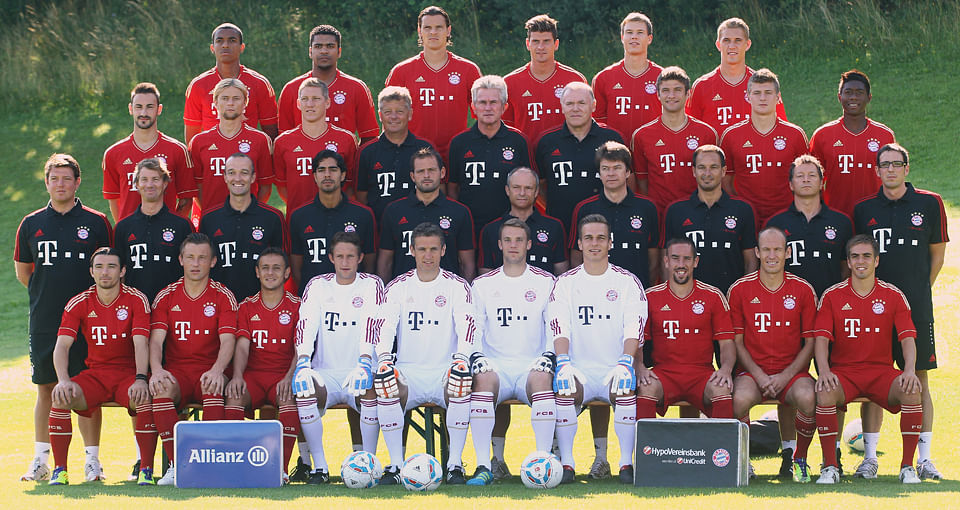play 88go
₫9.112.091
play 88go © Đăng ký chơi game bài đổi thưởng và nhận ngay 99k vào tài khoản. Bắt đầu hành trình chiến thắng của bạn ngay bây giờ!
Product description
The Bayern Munich Business Model: A Blueprint for Success
The success of Bayern Munich's business operations can be attributed to a carefully crafted strategic vision that has prioritized long-term sustainability and growth over short-term gains. The club's commitment to prudent financial management, strategic investment in infrastructure and player development, and a focus on cultivating a strong brand and global fanbase have all been crucial elements of this model.
Bayern Munich's Iconic Players: From Beckenbauer to Lewandowski

Beckenbauer's graceful, sweeping style and his ability to dictate the tempo of the game made him a feared opponent and a beloved figure among Bayern fans. Alongside him, the prolific goal-scoring exploits of Gerd Müller cemented his status as one of the greatest strikers of all time, with his unparalleled positioning and clinical finishing securing countless victories for Bayern.
Moreover, the Allianz Arena has become a fortress for Bayern, with the club's home record being one of the most formidable in European football. The unique atmosphere and passionate support of the Bayern faithful have made the Allianz Arena a daunting prospect for opposing teams, contributing to the club's continued dominance in the Bundesliga and on the European stage.
The Allianz Arena's Significance for Bayern Munich
The Allianz Arena has become much more than just a football stadium for Bayern Munich; it is a symbol of the club's ambition, a rallying point for its passionate fan base, and a testament to its status as a global powerhouse.
Embracing Innovation and Sustainability
In an era marked by rapid technological advancements, shifting consumer behaviors, and growing environmental concerns, Bayern Munich must also embrace innovation and sustainability as core pillars of its future strategy. From investing in eco-friendly stadium infrastructure to adopting digital technologies for fan engagement and commercial growth, Bayern can lead the way in setting new standards for environmental responsibility and operational efficiency in football.
Becoming a Global Powerhouse
As the decades passed, Bayern Munich continued to cement its status as one of the most influential and successful clubs in world football. The club's unwavering commitment to excellence, coupled with its ability to attract and develop world-class talent, has allowed it to maintain its dominance both in Germany and on the European stage.
The Bayern Munich Brand: A Global Phenomenon
In addition to its financial success, Bayern Munich has also cultivated a formidable global brand that has become synonymous with excellence, tradition, and innovation. The club's iconic crest, distinctive red and white colors, and rich history have all contributed to the creation of a brand that resonates with football fans around the world.
The Tactical Evolution of Bayern Munich
Throughout its history, Bayern Munich has consistently adapted its tactics to meet the demands of the modern game. From the controlled possession-based approach of the 1970s to the high-pressing, counter-attacking style of the 21st century, the club has always been at the forefront of tactical innovation.
One of the key drivers of Bayern's financial prowess has been its ability to attract and retain some of the world's most marketable players, whose global appeal and on-field performances have translated into lucrative sponsorship and endorsement deals. This, combined with the club's prudent financial management and strategic investments, has enabled Bayern to consistently outspend and outperform its competitors, further cementing its status as a footballing superpower.
By seamlessly integrating the business and sporting aspects of the organization, Bayern has been able to create a virtuous cycle of success, where on-field triumphs translate into commercial and financial rewards, which are then reinvested into the club to fuel further growth and dominance. This holistic approach to the business of football has helped to solidify Bayern's position as one of the most well-run and successful organizations in the industry, serving as a blueprint for other clubs aspiring to achieve similar levels of success.
In the 21st century, Bayern has solidified its position as a true global brand, with a vast international fan base and a reputation for consistent success. The club's financial might, state-of-the-art facilities, and world-class training program have all contributed to its ability to attract and retain the best players in the world, further strengthening its position as a footballing juggernaut.
The Modern Tactical Masterminds
In the 21st century, Bayern Munich has continued to attract some of the most talented and innovative coaches in the game. Jupp Heynckes, who led the team to a historic treble in 2013, was renowned for his ability to blend pragmatic tactics with a free-flowing attacking style, allowing Bayern to overwhelm opponents with their sheer quality and tactical flexibility.
In more recent years, the arrival of players like Robert Lewandowski, Manuel Neuer, and Joshua Kimmich has further elevated Bayern's status as a global powerhouse. Lewandowski's goal-scoring exploits have cemented his place as one of the best strikers in the world, while Neuer's revolutionary goalkeeping style and Kimmich's all-encompassing talent have helped to maintain Bayern's position at the forefront of European football.
This willingness to evolve and experiment with new strategies has been a key factor in Bayern's sustained success. By constantly challenging their own assumptions and embracing new ideas, the club's coaches have been able to keep Bayern one step ahead of their rivals, ensuring that the team remains a dominant force both domestically and internationally.
However, the club's fortunes began to change in the 1920s, as it started to attract some of the best players in the country. This influx of talent, coupled with the club's growing ambition, set the stage for a meteoric rise to the top of German football.
The Allianz Arena's Unique Features
The Allianz Arena is renowned for its cutting-edge design and innovative features. One of the most striking aspects of the stadium is its external facade, which is composed of 2,874 pneumatic cushions that can be illuminated in a variety of colors, creating a mesmerizing display that can be seen for miles.
The 1970s were a particularly golden era for Bayern, as the club won three consecutive European Cup titles (now known as the UEFA Champions League) between 1974 and 1976. This period saw the emergence of some of the greatest players in Bayern's history, including Franz Beckenbauer, Gerd Müller, and Sepp Maier, who together formed the backbone of a team that dominated both domestically and internationally.
The Next Generation of Bayern Legends
As Bayern Munich looks to the future, the club's renowned youth academy continues to produce a steady stream of promising young talents, ensuring that the tradition of excellence will be carried on for generations to come. Players like Jamal Musiala, Alphonso Davies, and Serge Gnabry have already emerged as the next wave of Bayern superstars, their youthful exuberance and raw talent hinting at the continued dominance of the Bavarian club.
Sustaining a Winning Culture
Central to Bayern Munich's enduring success over the decades has been its unwavering commitment to a winning culture grounded in excellence, professionalism, and a relentless pursuit of victory. As the club looks to the future, it must ensure that this winning mentality permeates every aspect of its operations, from the first team to the youth academy, from the boardroom to the stands.
The Resilience of the Rivalry
Despite the ebbs and flows of form and fortune that both clubs have experienced over the years, the Bayern-Dortmund rivalry has remained a constant source of excitement and intrigue for football fans worldwide. Whether it's a top-of-the-table clash in the Bundesliga, a tense cup final showdown, or a high-stakes European encounter, the matches between these two giants of German football never fail to deliver drama and spectacle.
By leveraging its global brand, business acumen, and sporting expertise, Bayern can position itself as a trailblazer for innovation in the industry, setting new benchmarks for sustainability, social responsibility, and fan experience. Through a proactive approach to embracing change and driving progress, Bayern Munich can lay the foundation for continued success and relevance in an ever-evolving football landscape.
The current Bayern manager, Julian Nagelsmann, has continued this tradition of tactical innovation, implementing a high-pressing, possession-based style that has made the team even more formidable. Nagelsmann's ability to get the best out of his players, combined with his strategic acumen, has been instrumental in Bayern's continued success in the Bundesliga and on the European stage.
The Global Reach of the Bayern Munich Fan Base
Bayern Munich's success has not been limited to the domestic arena; the club's global appeal has seen its fan base expand far beyond the borders of Germany. Through strategic marketing initiatives, a strong social media presence, and the consistent success of the team on the pitch, Bayern has managed to cultivate a devoted following in every corner of the world.
One of the most iconic figures in Bayern's history is Udo Lattek, who took charge of the club in the 1970s and helped to shape the team's trademark possession-based approach. Lattek's tactical acumen and ability to get the best out of his players were instrumental in Bayern's dominance during that era.
See more:oxbet đăng nhập
Establishing Dominance in the Bundesliga
The formation of the Bundesliga, the top professional league in Germany, in 1963 marked a pivotal moment in Bayern Munich's history. The club quickly established itself as the dominant force, winning the first Bundesliga title in the 1965-66 season and going on to secure a record-breaking 30 league championships to date.
The Bayern Munich Ultras: The Heart and Soul of the Fan Base
At the core of the Bayern Munich fan culture are the club's dedicated ultras, a passionate group of supporters who have taken the art of fan engagement to new heights. Known for their mesmerizing choreographies, thunderous chants, and unwavering support, the Bayern ultras have become an integral part of the match-day experience, creating an atmosphere that is unmatched in the world of football.
Lahm's tactical intelligence and defensive versatility made him a cornerstone of the Bayern backline, while Schweinsteiger's boundless energy and technical prowess in midfield allowed him to dominate games with ease. Thomas Müller, on the other hand, has become synonymous with Bayern's relentless pursuit of success, his unique playing style and ability to contribute in multiple roles making him an indispensable asset.
The Modern Superstars
As the decades passed, Bayern Munich's ability to attract and develop world-class talent has remained undiminished. The turn of the 21st century saw the rise of a new generation of superstars, led by the likes of Phillip Lahm, Bastian Schweinsteiger, and Thomas Müller.
The 1990s saw the arrival of another legendary coach, Giovanni Trapattoni, whose strategic flexibility and commitment to defensive solidity helped Bayern to weather a period of transition and emerge as a force to be reckoned with once again.
The Tactical Masterminds Behind Bayern Munich's Success








